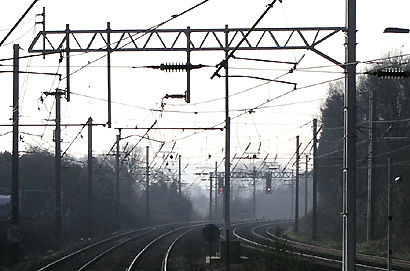THE Association of Train Operating Companies has called for Network Rail to be broken up into ten regional Infracos, leaving only a small central organisation.
Network Rail has already announced that it intends to devolve power to its route directors, but ATOC wants to take the process much further.
The Association is also suggesting that some franchises could be converted into long-term concessions.
ATOC, whose members include all the franchised operators in Britain, said that Network Rail’s recent announcement on devolution was ‘welcome but does not yet go far enough to help achieve the £1 billion annual savings identified by the interim McNulty report into value for money’.
Three key elements of reform being suggested by 2014 are the creation of about ten independent infrastructure companies, or ‘infracos’, separately licensed and regulated by the Office of Rail Regulation. They would be significant FTSE-250 sized businesses and, according to ATOC, attractive to potential investors.
There would still be a ‘lean central body for essential network-wide functions, governed by the industry as a whole, rather than just Network Rail, and acting more as a service provider to its infraco and train operator clients’.
ATOC also wants ‘new franchising and regulatory arrangements that incentivise train companies to work with the new regional infrastructure businesses to form alliances or enter into commercial agreements’.
Its chief executive Michael Roberts said: “We believe this approach would lead to better and quicker decisions on projects which matter most to passengers, greater accountability to regional funders and stakeholders, and a stronger drive to improve cost-efficiency through genuine contestability between infracos in providing infrastructure.”
ATOC has also affirmed its call for vertical re-integration in some areas. It cites Greater Anglia, South West Trains, Kent, MerseyRail and Scotland as possible candidates for unified control of track and train, so that operators would also be responsible for train regulation and infrastructure maintenance, as in the days of British Rail.
A further change it suggests is the replacement of some franchises with long term concessions, saying: ‘This approach might be best applied to premium-paying intercity train operations’.
However, the proposals have been given a luke-warm reception by Network Rail.
A spokesman there said: “Just a fortnight ago Network Rail announced it is changing its structure and business to better align itself to the needs of both its customers and passengers by creating a number of new, powerful, devolved business units run by route managing directors.
“Network Rail has been playing a vital role in the government’s McNulty review into value for money for the railway and is committed to change. By better aligning risk and reward with passenger, freight and open access operators and by improving transparency across the whole industry, we can all help each other succeed and deliver not only a bigger and better railway, but a better value railway too.”


